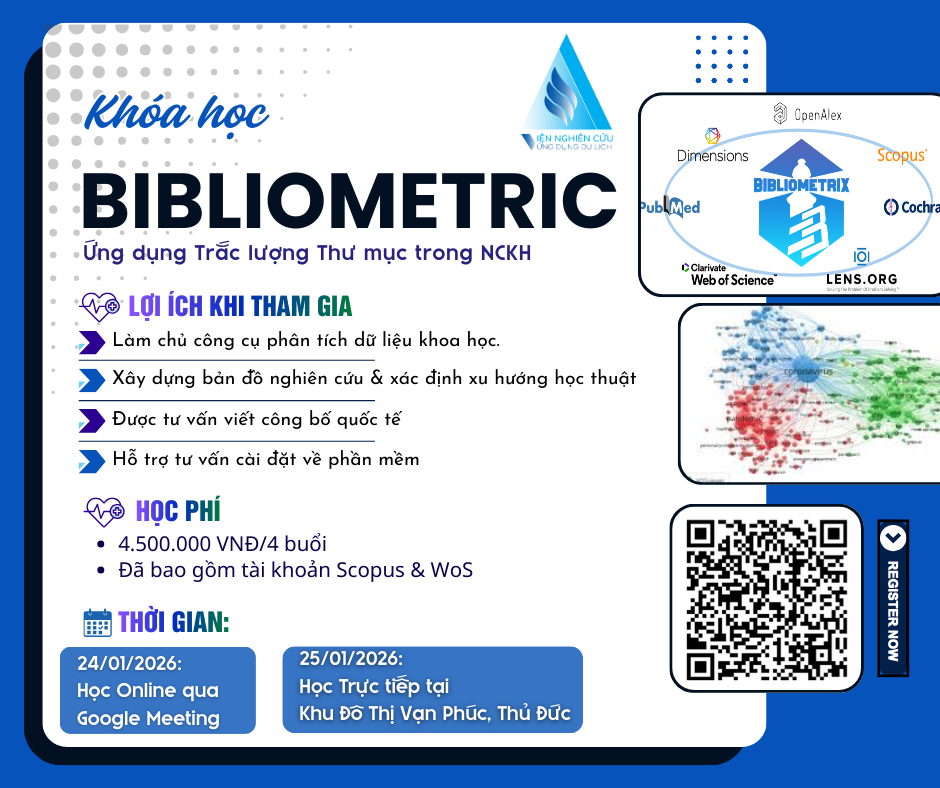This post is also available in:
Tiếng Việt (Vietnamese)
In the post-COVID-19 context, the global tourism industry—especially tourism in heritage cities—faces a pivotal turning point. Digital technology, once a supporting tool, has now become central to strategies for recovery and sustainable development.
COVID-19 Pandemic: A Storm that Exposed Core Issues
Not merely a health crisis, the COVID-19 pandemic rendered cultural tourism centers silent, cutting off their primary source of income from visitors. The once-bustling streets of Venice, Khiva, or Puebla (Mexico) became desolate, spreading anxiety among communities dependent on tourism
However, amid this crisis, a new phenomenon emerged: a surge in demand for cultural and heritage access through digital platforms. Some World Heritage sites recorded more than a 30% increase in website traffic and social media interaction—opening a rare “window of opportunity” for the global tourism sector, especially in heritage cities.
Digitalization: From Supporting Tool to Strategic Platform
An international seminar organized by the United Nations Office for South-South Cooperation (UNOSSC) brought together experts from UNESCO, UNWTO, and representatives of heritage cities such as Venice (Italy) and Khiva (Uzbekistan) to discuss a key question: How can digital innovation become the key to developing more sustainable heritage tourism?
Some exemplary initiatives were shared:
-
UNESCO expanded its World Heritage Journeys platform, providing in-depth digital content on heritage and cultural routes. Notably, the collaboration with Expedia in the UNESCO Sustainable Tourism Pledge established a digital ecosystem to promote responsible tourism.
-
Venice, long burdened by overtourism, invested heavily in Wi-Fi and fiber-optic networks to monitor real-time visitor flows. The city is transitioning toward “smart tourism,” utilizing VR and AR to enhance experiences—enabling remote planning and exploration.
-
Khiva, with its distinctive Islamic architectural heritage, introduced the Uzbekistan360 platform, offering immersive 360-degree virtual tours—a stepping stone toward deeper VR/AR applications.
-
The Association of Mexican World Heritage Cities focused on supporting small enterprises—hotels, restaurants, and tour guides—via a two-tier digital platform offering promotions and incentives to stimulate domestic demand.
These initiatives not only kept cities connected with tourists but also promoted inclusion—helping people with disabilities, the elderly, and other vulnerable groups access cultural heritage more easily.
 Digital Is Not a “Silver Bullet”
Digital Is Not a “Silver Bullet”
Despite its vast potential, digital transformation in heritage cities faces several obstacles:
First is the challenge of balancing economics and preservation. As digital platforms expand access, how can we avoid the over-consumption or commodification of heritage?
Second, there is a lack of quantitative and qualitative data. UNWTO warns that tourism policy cannot be effectively developed without accurate data on visitor behavior and expectations in the digital age.
Another issue lies in the vulnerability of informal workers. In many regions, artisans, street performers, and freelance guides lack formal contracts—raising questions about income equity in virtual tourism models.
In Khiva, local authorities reported a lack of information and resources to access international investment funds, causing many promising digital startups to be overlooked.
The Road Ahead: Not Just Recovery, But Restructuring
From extensive discussions, experts proposed strategic directions for the future of heritage cities post-pandemic:
-
“Build Back Better”: Rather than reverting to old models, aim for a smarter, greener, and more resilient tourism industry.
-
People-Centered Focus: Integrate youth, women, the elderly, and people with disabilities into the tourism value chain through digital skill training and entrepreneurship support.
-
Rehabilitating the Tourism Workforce: Reskill, upskill, and ensure sustainable forms of employment—especially in creative cultural sectors.
-
Promoting South-South Cooperation: Enhance data and knowledge sharing among developing countries to build stronger support networks for small and medium-sized heritage cities.
-
Participatory Governance: Involve city governments, local communities, cultural organizations, and experts in building joint strategies grounded in dialogue and consensus.
-
New Legal Frameworks: Update outdated tourism and heritage preservation laws to reflect the digital era and ensure greater social responsibility from local authorities.
Digital Is Just a Tool – People Are the True Drivers
The seminar concluded with a unified message: Digital innovation is not the destination, but a means to bring people closer to heritage—in more inclusive, flexible, and personalized ways.
If the post-COVID-19 tourism sector truly wishes to recover sustainably, it must become a shared space—where local residents are the protagonists of the journey, and technology is an enabler, not the leader.
As a catalytic intermediary, UNOSSC commits to continue supporting heritage cities worldwide by connecting partners, sharing knowledge, and collectively advancing toward a more inclusive, intelligent, and humane tourism future.

 Digital Is Not a “Silver Bullet”
Digital Is Not a “Silver Bullet”








